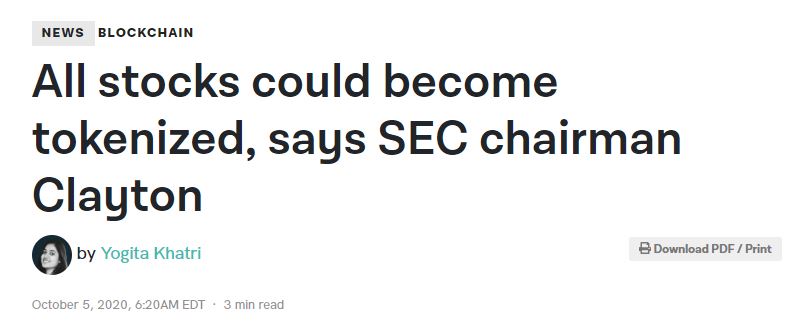Well, it finally happened. The president of the United States caught COVID-19, joining the likes of British Prime Minister Boris Johnson and Brazilian President Jair Bolsonaro, both of whom are also quite famous for downplaying the affects of the virus.
Though the media tends to go nuts over this kind of thing, the bottom line is that nobody really cares.
Those who believe that this current pandemic is a great force to fear are probably glad that the leaders who don’t think like them have gotten sick. As for those who think it’s no big deal, well …
Bottom line, catching the virus seems to be a brilliant move politically, as long as it doesn’t kill you.
In any case, the market made its feelings perfectly clear on Friday with a sell-off of less than 1% across the major indices.
Now that the president is well enough to make video and even personal appearances for his fans outside the hospital and is even tweeting again, the market is giving us a relief rally.
It just goes to show that the news of the day is not what controls the narrative, and the narrative is not what controls the price.
Stocks remain overvalued because there’s too much money in the system that needs a home, and the lower-risk alternatives are no longer attractive.
In the meantime all markets, including our beloved digital asset space, seem to be going nowhere fast. So let’s take a look at two other trends that have been top of mind lately.
Tokenizing Nasdaq
My team and I were just watching this, but the headlines are already running. …

For those of us already in the space, this is certainly not new information. Some of us understood the power of tokenization as far back as 2013, and we got that the migration of the traditional stock markets into tokenized assets on a blockchain was inevitable.
To hear it from U.S. Securities and Exchange Commission Chairman Jay Clayton, however, is something new. For those of you who are not familiar, he is one of the biggest antagonists of the utility token market, and some would even argue that it’s solely because of him that the 2018 crypto winter was so brutal.
As usual, context is important and I wanted to see for myself what was behind the headline. Luckily a recording of the full discussion is available for free at this link.
It’s two hours long, but I recommend starting at around the 15 minute mark, which is where Clayton and more importantly Acting Comptroller of the Currency Brian Brooks come on the line.
Brooks, also known as the crypto comptroller, has been single-handedly responsible for getting us excited about FinTech innovation coming to the United States.
Sure, there are zillions of questions on how regulation of the digitized marketplace will work in the future, but the fact that these two men are now talking openly and moving forward on it can only be a good thing. This is a turning point for the digital asset space in the United States.
Steaks for dinner
The next stage in this evolution, of course, became clear over the last few years as people started to ask: if I’m already holding, why not earn some interest?
It started with services that hold your crypto for you and pay out interest, and some of the companies providing this service are actually some of the most profitable businesses in the space.
But the idea of staking a coin in a smart contract in order to earn rewards has been on Ethereum’s road map for quite some time as an additional way to verify transactions instead of using the power-intensive Proof of Work method native to Bitcoin.
More recently, crypto exchanges have been quick to add these services for their clients to make things more user-friendly so that the average non-coder can access them.
Over the last week, eToro has announced their first gander into staking services and Bitfinex has added the option to stake more coins.
In my mind, it’s this precise scheme that paved the way for the entire DeFi trend. After all, from the network’s perspective, adding the ability to stake coins is a no-brainer.
It gives people incentive to hold the coin, and since we’re dealing in magic internet money that is free to produce, the only cost you face is the potential for increased inflation down the line.
Fortunately, the crypto space will probably produce many more developments like this going forward.


